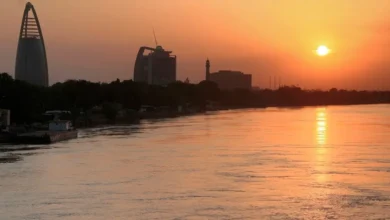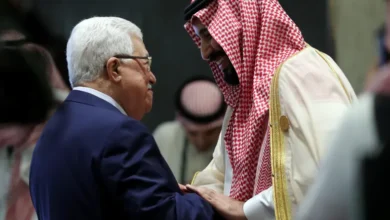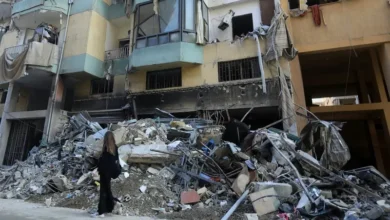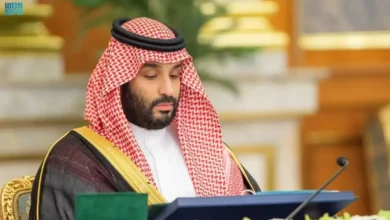Temperatures in Middle East rise twice as fast as global average, GCC countries act
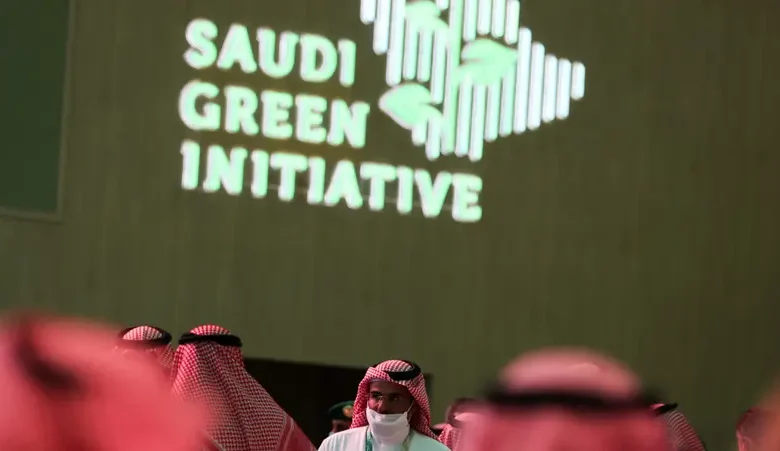
The Middle East and the Eastern Mediterranean are facing rising temperatures almost twice as quickly as the rest of the world, according to a report by The Cyprus Institute’s Climate and Atmosphere Research Center and the Max Planck Institute for Chemistry.
Findings conclude that the Middle East and North Africa (MENA) region will see an increase of five degree Celsius in overall temperatures in the next 100 years if no considerable action is immediately taken by countries to remedy the situation.
Extreme weather conditions such as the deadly flash floods in Fujairah in the UAE, extensive droughts, natural disasters such as the series of earthquakes in Turkey, and generally low ground water levels can all be seen as indicators of the ways in which climate change can affect populations in the region.
It bodes all stakeholders well to remember that issues concerning climate change are more intersectional than they may seem at first sight. The effects of climate change can be seen on both the economy and society in terms of housing crises, reduced food security, shortage of potable water, rising crime rates, and an adverse influence on primary sectors such as fishing, agriculture, forestry, and mining.
Climate change, despite the polarized opinions or because of them, has reached an un-ignorable stage. In fact, a global poll by the United Nations’ Children’s Fund (UNICEF) revealed that climate change has made young people across the world reconsider their plans for parenthood, underlining their uncertainty about the future of the planet.
What makes matters worse specifically in the Middle East and the larger Global South are the instances of armed conflict across Afghanistan to Somalia, Mali to Yemen, and Palestine to Israel. When risks involved with climate change and extreme weather conditions are combined with the effects of war, the consequences are multiplied several folds – making vulnerable populations in these conflict zones even more exposed to the drastic impact of climate change.
According to the study, what makes the Middle East more susceptible to higher rises in temperatures than some other parts of the world are geographical features such as large expanses of desert and lower ground water levels.
The good news
The silver lining is that the Middle East has the knowledge, resources, and distinct opportunity to take a global leadership role in climate technology, which can exponentially define the region’s response to climate change and curtail the adverse effects of it on everyday lives of the people living in the Middle East.“The region has nature-given advantages including some of the most competitive solar energy output in the world that make it a very low-cost producer of renewable energy,” said Dr. Yahya Anouti.
The run up to COP28 in the UAE is another optimistic step in the right direction as private and public entities in the country continue to launch programs that address climate change issues.
Earlier this year, Dubai International Financial Center (DIFC) announced its ‘Climate Finance Training Series’ aimed at helping financial services practitioners understand the “COP28 process, global trends in climate finance and best practice approaches to developing and implementing the net zero strategies.”
Given the region’s current economic dependence on crude oil and the complex nuances concerning both energy consumption and production in the region, a goal for net zero strategies is challenging but necessary.
The UAE Net Zero 2050 initiative is a national campaign to reach net-zero emissions by the year 2050. The initiative is in line with the Paris Agreement, which focuses on reducing greenhouse gases and limiting the rise in global temperatures.
With the $500 billion mega project NEOM, Saudi Arabia is embarking on its own journey to fight against the effects of climate change. NEOM’s ethos includes being a “blueprint for tomorrow in which humanity progresses without compromise to the health of the planet.”
Recently, NEOM also announced plans to train Saudi chefs to work in what is being deemed as the “world’s most food self-sufficient city.” In collaboration with the ethical food project CARE, the plan is to oversee that the “journey of food from the planet to the plate” is carried out with the utmost care for the natural environment – minimizing any contribution to exacerbating climate change issues.
In a bid to reinforce their commitment toward the climate, Saudi Arabia and the UAE have been leading the energy transition to renewable sources in the Gulf since COP27. The Al Dhafra plant in Abu Dhabi, expected to be the world’s largest single-site solar plant, will be fully operational by this year. Similarly, Saudi Arabia’s Vision 2030 also focuses on sustainable development and responsible energy consumption, and projects like the Saudi Green Initiative (SGI) help speak to the country’s commitment to climate action.

